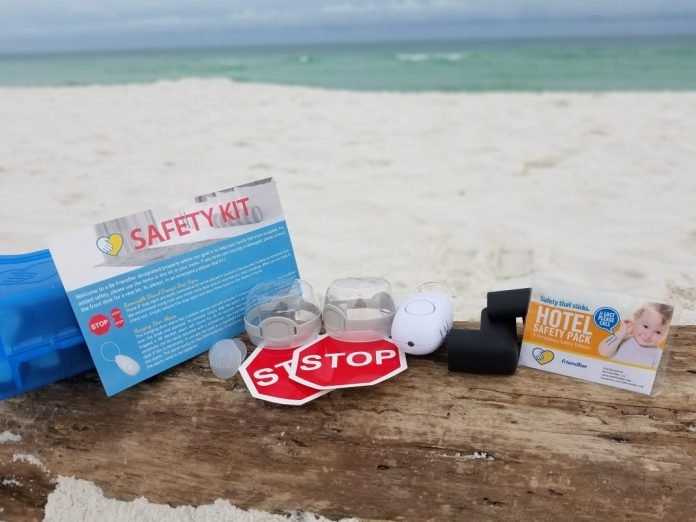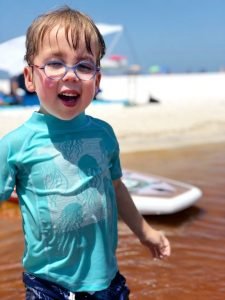
For families that include children with developmental or intellectual disabilities, vacationing may not be an easy task. Aimee Allenback is working to change that with her Be Friendlier program, which offers hotels strategies for making travel more accessible to those with special needs. A training program for hotel staff, Be Friendlier informs about diagnoses, behaviors, and shares ways staff can interact with children with disabilities to make them as comfortable as possible.
Allenback, owner and creator of Be Friendlier, first saw the need for this training when she was working as a conference service manager and planned an event for the National Autism Association (NAA). Allenback immediately noticed how much these families were struggling just to stay in a hotel with their young children. After forming a positive working relationship with NAA, Allenback decided to leave the hospitality industry and work for the organization directly, first as a contractor and later on as a development director. Eventually, Allenback stepped away from the nonprofit world to pursue something that aligned with her enthusiasm for travel and addressed the lack of accommodations at hotels for people with disabilities.
“I decided I needed to find something where my passion lay and where I knew there was a need,” says Allenback. “And there’s an absolute need for a program like this.”
 The Be Friendlier program, which consists of three different modules that take about 45 minutes total to work through, was designed to be simple and easy. Lessons for hotel staff include types of diagnoses, potential behaviors that they might see, and how to interact with children affected by these disabilities. Hotels that complete the Be Friendlier program can access materials at any time to train new staff or retrain the team if they need a refresher.
The Be Friendlier program, which consists of three different modules that take about 45 minutes total to work through, was designed to be simple and easy. Lessons for hotel staff include types of diagnoses, potential behaviors that they might see, and how to interact with children affected by these disabilities. Hotels that complete the Be Friendlier program can access materials at any time to train new staff or retrain the team if they need a refresher.
Be Friendlier is built around three key points: preparation, safety, and compassion. Be Friendlier properties develop social stories that can be shared with guests before they arrive that visually outline what the experience will be like and allows children to familiarize themselves with the hotel and their guestroom before making the trip. The social stories are available as a printable or video, and can help reduce the anxiety that may come with an environmental change, turning a potentially traumatic experience into an exciting one.
The program also provides safety kits for hotels that families can check out as needed. The kits include items such as corner guards, outlet covers, and waterproof tattoos on which parents or caregivers can write important information in case a child wanders off.
So far, six properties are certified through the Be Friendlier program, and many more are looking to implement the program over the next few months. Allenback says that the hotels that are certified are experiencing benefits not only in improved guest satisfaction, but also in overall revenue. This is because Be Friendlier enables hotels to break into the accessible/special needs travel market, which has an estimated $10 billion in unspent dollars, for a very lost cost of entry.
“Hotels in the program are finding that once families find out about them, they are loving being there,” Allenback says. “These families have been looking to be heard, they’ve been looking to be understood, and they’ve been looking to be accepted and welcome to do things that typical families do. It’s fantastic to be able to offer a program that makes their lives easier.”











